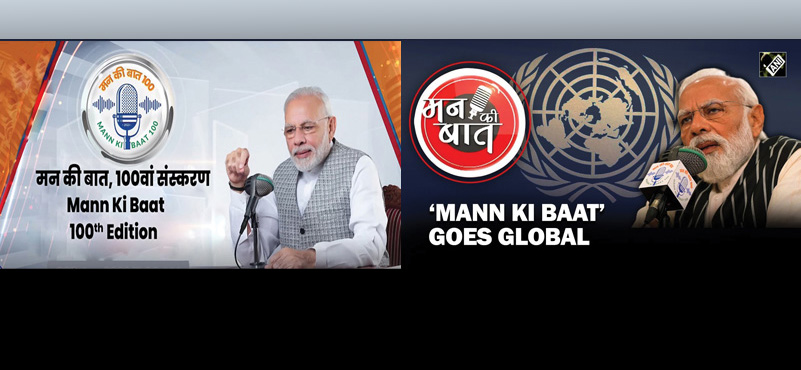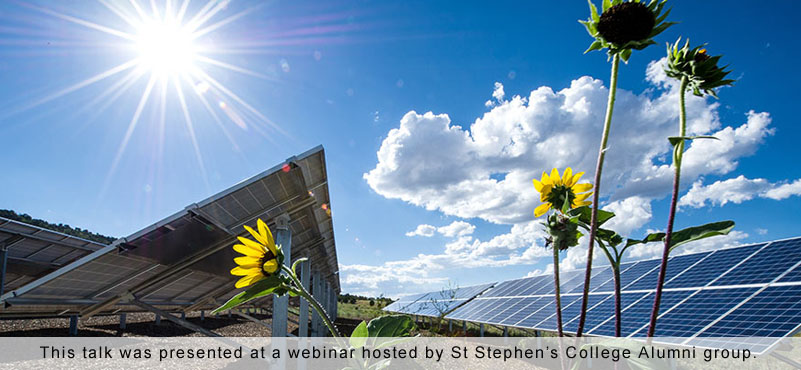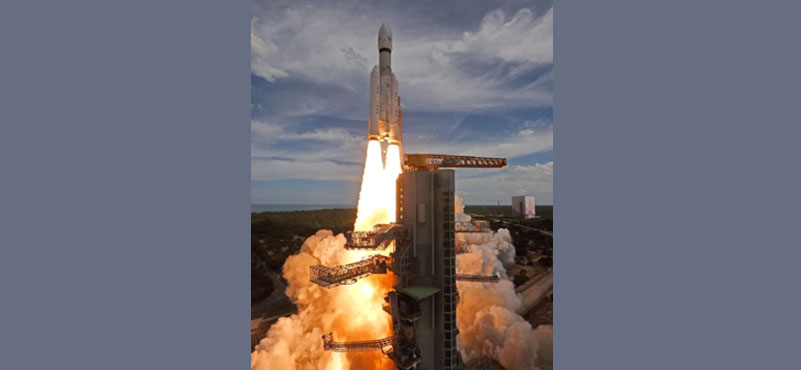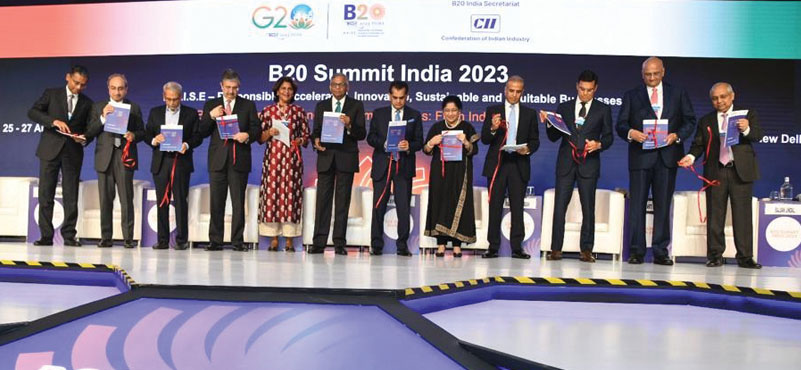Read no more than this, in these episodes. It is the man, Narendra Modi, who has devised this medium as his social connect with the people across the country.
It is the pracharak in him that must have egged him to think of this program. Possibly, divorced from his once daily routine of mingling with the people at the very bottom of our society, as Prime Minister, he must have evolved this conversation medium. In his Mann Ki Baat, he could still connect, share his vision of social transformation that India needs and is undergoing.
What differentiates the Mann Ki Baat series is its grassroots participation. A brainchild of PM Modi, Mann ki Baat recently completed 100 episodes, much to a predictable celebration among the ruling party circles, equally among the large fan following that PM Modi has acquired over recent years. The idea of direct outreach to the masses across the country using one of the oldest and most ubiquitous mediums of information dissemination has received a most rousing response from the larger sections of our society, especially the under privileged, which is the audience for whom it was intended.
Thousands have written him letters, talking about their challenges, and sharing inspirational yet lesser-known stories that are worth sharing. PM Modi has routinely talked about local heroes and change-makers, catapulting them into the limelight. Recognizing local heroes has morphed Mann ki Baat into a participatory undertaking, which is one definite reason for its success.
The Radio is omnipresent, and now available in every car in the metro as well, not just for the villages where there is no television yet. Radio is cheap, easily available, requires no electricity and allows the conversations to circumvent the more frequently used channels of modern-day communication. It gives the PM a sense of one to one.
Among the first episodes was that memorable co-hosting of the show, along with then President of USA, Barack Obama. The former President used this talk to strengthen his country’s relations with India. 100 episodes strong, it is a tribute to the PM’s commitment to the programme; it is equally a testimony to the determination of the team behind it, as it calls for much spade work in putting together every episode.
It is another matter that makes every action in India becomes a political issue, gives every action a political colour. To my mind, this is more of a social dialogue, on subjects that concern the ‘real’ common man, in the sense of upliftment of the individual, a concern that the PM has felt from his earlier days when he toured the hinterland as a simple pracharak. In this sense, it may well be his homecoming, once a month. It is therefore, no surprise, that collections of his 100 conversations have been brought out. That the 100th episode was also aired at the UN and through every Indian embassy overseas.
That there are many who do not subscribe to the concept of pracharak is a given. Understandably, there are people who will discard any thoughts shared above. Needless to say, these are equally valid for those who believe in the need for social transformation, by organizations committed to it. Our national discourse must remain an open dialogue!
ABOUT THE AUTHOR
 Navin Berry, Editor, Destination India, has been in the business of reporting on travel, tourism and hospitality for almost 5 decades.
Navin Berry, Editor, Destination India, has been in the business of reporting on travel, tourism and hospitality for almost 5 decades.




































